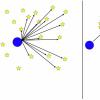
Manipulating mitochondrial dynamics
#1861
Posted 16 March 2021 - 05:30 PM
#1862
Posted 16 March 2021 - 10:38 PM
I take metformin regularly, not in order to riff on the protocol.
#1863
Posted 17 March 2021 - 03:26 AM
Possibly I took more stearic acid on fusion days than could be eliminated in time for fission.
I expect that is true. By taking more of everything, you may be getting less differentiation between fission and fusion. More is less, in this case.
Edited by Turnbuckle, 17 March 2021 - 03:29 AM.
#1864
Posted 18 March 2021 - 08:41 AM
I'm continuing the protocol with a reduction in the quantities of certain supplements to bring everything more in line with recommended doses.
I have dropped the AAKG. I'm having a bad reaction to something in the protocol, and I strongly suspect it's the AAKG. If my AKG on order arrives before my mitochondria are fixed, I will start including that.
"Daily morning biceps curls to failure" is the only biceps-targeted exercise I'm presently doing. And it's a hell of a good workout for that region. I have no prior experience doing moderate-weight biceps curls to failure. For me, it's new territory. I constrict other upper-body exercises to the day following fission product consumption. Therefore, consistently worse performance on fission days can't be explained by such exercise fatigue.
Edited by Empiricus, 18 March 2021 - 08:55 AM.
#1865
Posted 18 March 2021 - 09:38 AM
I'm continuing the protocol with a reduction in the quantities of certain supplements to bring everything more in line with recommended doses.
Good. Look again at the attached plot in post #1739, specifically at days 7-9. On day 8 I skipped the treatment, as I wanted to see if reps-to-failure would drift down to baseline. It did not. The reps-to-failure fell on the fusion curve as if I had taken stearic acid. So only one gram of GMS appears to be necessary, as stearic acid has a long half life* and mitochondria are quite sensitive to it.**
Edited by Turnbuckle, 18 March 2021 - 10:14 AM.
#1866
Posted 19 March 2021 - 10:27 AM
Tru Niagen is not an option as nicotinamide ribose has to be digested before it becomes effective. This produces an unacceptable time delay of hours, while mitochondria biogenesis is very fast. If you want an option, try niacin, which will raise NAD+ even faster than nicotinamide, though the average person will not find the flush acceptable, and it can cause acid stomach.
See Fig. 5-b of this paper, and you will understand the problem with Tru Niagen (nicotinamide riboside).
Is NMN an acceptable alternative to niacinamide or niacin?
The ribose I have been using is expired by one year. It's yellow and clumps together. (These capsules aren't brown and disgusting looking like old NR capsules, the contents is just yellow and clumpy). Any reason to believe the freshness of ribose makes much difference?
Edited by Empiricus, 19 March 2021 - 11:23 AM.
#1867
Posted 20 March 2021 - 07:41 AM
For my most recent fission day, I took 1000mg niacinamide, 500mg niacin, and 300mg NMN. The combination left me much more fatigued in the early morning hours than occasions when I had merely doubled the niacinamide dose.
I experience a strange side effect from 500mg niacin: In addition to the itching and flushing, my face became extremely wrinkled, as if I had put on a costume mask of Yoda or some such ancient creature. I took on the appearance of someone several decades older. Last night this Jekyll-to-Hyde transformation took 45 minutes to fully unfold. I turned out the lights so as not to scare the shit out of my girlfriend. It's not the first time I have observed this side effect of niacin. Fortunately, it's not permanent.
Edited by Empiricus, 20 March 2021 - 07:51 AM.
#1868
Posted 20 March 2021 - 07:58 AM
Well, if THAT effect can be replicated and documented, it would be quite significant. I don't know of what, that side effect would be indicative, but it would certainly be worth recording.
#1869
Posted 20 March 2021 - 11:22 AM
Well, if THAT effect can be replicated and documented, it would be quite significant. I don't know of what, that side effect would be indicative, but it would certainly be worth recording.
While Empiricus' reaction appears to be on the extreme side, a variety of negative but temporary symptoms are known--
Though cardioprotective, niacin monotherapy is limited by unpleasant cutaneous symptoms mimicking dermatitis: niacin-associated skin toxicity (NASTy). Niacin is prototypical of several emerging drugs suffering off-target rubefacient properties whereby agonizing the GPR109A receptor on cutaneous immune cells provokes vasodilation, prompting skin plethora and rubor, as well as dolor, tumor, and calor, and systemically, heat loss, frigor, chills, and rigors.
https://www.ncbi.nlm...les/PMC5392735/
I've tried niacin with this protocol, and didn't find any particular advantage over nicotinamide. One gram of nicotinamide proved entirely sufficient.
#1870
Posted 23 March 2021 - 09:19 PM
Thyroid hormone (T3) is the major endocrine regulator of metabolic rate, and its hypermetabolic effects have been well-characterized. T3 also has profound impacts on mitochondrial function and turnover by regulating processes such as mitogenesis, proton leak, OXPHOS, and ROS generation. Thyroid hormone (T3) stimulates mitochondrial biogenesis by increasing PPARGC1A (peroxisome proliferator-activated receptor gamma, coactivator 1 α) gene expression. It also promotes β-oxidation of fatty acids by increasing substrate availability/selectivity in hepatic mitochondria through induction of CPT1A (carnitine palmitoyltransferase 1A [liver]) and PDK4 (pyruvate dehydrogenase kinase, isozyme 4), and stimulation of lipophagy These, in turn, lead to increased oxidative phosphorylation and ROS production. Indeed, previous reports have shown that severe hyperthyroidism is associated with increased ROS production and cellular damage. Surprisingly, although T3 has been reported to concurrently induce mitochondrial activity and turnover, the underlying mechanism for their interrelationship is not well understood.
Recently, we and others, have shown that T3 is a potent inducer of autophagy, and this process is critical for β-oxidation of fatty acids and oxidative phosphorylation in mitochondria. However, it is not known whether T3-mediated autophagy participates in mitochondrial turnover. Accordingly, we examined whether T3-mediated induction of mitochondrial activity is associated with mitophagy. Using both in vitro and in vivo models, we found that stimulation of autophagy by T3 was regulated by mitochondrial activity via production of ROS and activation of CAMKK2 and PRKAA1/AMPK signaling in hepatic cells. We also observed that phosphorylation of a PRKAA1/AMPK substrate, ULK1, was a prerequisite for mitochondrial targeting by autophagic machinery. Perturbation of ULK1-dependent mitophagy severely impaired mitochondrial function. Our results thus provide direct evidence for hormonal regulation of the homeostatic and metabolic coupling of mitophagy with mitochondrial activity, and may help explain how T3 can sustain its prolonged calorigenic action in metabolically active tissues such as the liver.
...
Taken together, our data demonstrate that T3 maintains increased hepatic metabolic activity by promoting turnover of the intracellular pool of mitochondria through increased rates of mitophagy and mitochondrial synthesis. Thus, induction of mitophagy by intracellular ROS derived from increased mitochondrial energy production can help prevent the accumulation of damaged mitochondria as well as promote cellular health and function in hypermetabolic states. Mitochondrial function and its quality control are important factors in metabolic diseases such as diabetes and nonalcoholic fatty liver disease as well as aging., Our studies thus suggest that T3 or its analogs may be beneficial for treating these conditions by promoting mitochondrial turnover. Lastly, our finding that T3 stimulation of mitophagy occurs via a pathway involving increased ROS production; intracellular Ca2+ increase; CAMKK2, PRKAA1/AMPK, and ULK1 activation now provides several new therapeutic targets for maintaining mitochondrial number and function that could lead to novel treatments for metabolic and aging-related diseases.
Liothyronine might be of benefit in this protocol.
Edited by muntjac, 23 March 2021 - 09:20 PM.
#1871
Posted 24 March 2021 - 12:03 PM
Liothyronine might be of benefit in this protocol.
I always try to find supplements that are cheap, safe, and commonly available in the US. Liothyronine doesn't fit that bill--
Liothyronine is the most rapidly effective thyroid hormone, a single dose giving maximum effect within 24 h and passing off over 24–48 h. It is not routine treatment for hypothyroidism because its rapid onset of effect can induce heart failure.
Diana C. Brown, in Clinical Pharmacology
Beyond that, the protocol already seems to be doing a reasonable job of mitophagy. You don't want to go too fast in any case. There's a limit to how much mitophagy a cell can accomplish per cycle, as it requires the limited resource of lysosomes. Overwhelming the recycling machinery could result in other cellular trash building up, perhaps to toxic levels.
#1872
Posted 24 March 2021 - 01:38 PM
I'd been looking for other ways to promote fission because nicotinamide gives me migraines if I use it more than once a week. I have subclinical hypothyroidism, which might be part of the reason I developed mitochondrial dysfunction. I'll report back if I trial it.
#1873
Posted 24 March 2021 - 03:31 PM
I'd been looking for other ways to promote fission because nicotinamide gives me migraines if I use it more than once a week. I have subclinical hypothyroidism, which might be part of the reason I developed mitochondrial dysfunction. I'll report back if I trial it.
There's no reason you couldn't cut back to one cycle a week.
#1874
Posted 24 March 2021 - 05:19 PM
Prior to this protocol, if I got a chill outdoors, it would take over an hour for me to warm up in front of a heater, and getting hot would make me feel ill. I've still got a long way to go before healthy mitochondrial function is restored.
#1875
Posted 28 March 2021 - 05:59 AM
#1876
Posted 28 March 2021 - 06:59 AM
I've completed 19 days of an approximation of the new Turnbuckle protocol -- almost 10 cycles. As suggested by Turnbuckle, I conducted dumbbell reps in the mornings to measure my progress.
Av. # of reps fission days 1,3, 5 = 33.7
Av. # of reps fission days 15, 17, 19 = 41.7
Av. # of reps fusion days 2,4, 6 = 41.3
Av. # of reps fusion days 14,16, 18 = 47.3
Av. # of reps on fission days 25, 27, 29 = 54.3
Attached Files
Edited by Empiricus, 28 March 2021 - 07:58 AM.
#1877
Posted 28 March 2021 - 11:40 AM
I have been taking Ubiquinol Keneka QH 200 mg from Jarrow Formulas daily for two weeks. After 4-5 hours I feel very tired. It is possible that Ubiquinol Keneka QH strongly promotes mitochondrial division.
In mice it doesn't. It can promote mitophagy, however, and that could explain the tired feeling you experienced.
... results showed that even though CoQ10 had no effects on the mtDNA copy number and the expression of genes related to mitochondrial biogenesis, it significantly improved the mitochondrial complex I and V activities and promoted the mitophagy in APAP-overdose mice. To further authenticate mitophagy role in CoQ10-mediated improved liver injury in vivo, we administrated APAP-overdose mice with chloroquine 1 h prior to APAP treatment and found that ... CoQ10 activates mitophagy to protect against APAP-induced liver injury.
https://pubmed.ncbi....h.gov/33271250/
Edited by Turnbuckle, 28 March 2021 - 12:05 PM.
#1878
Posted 28 March 2021 - 11:56 AM
The protocol was more physically stressful than anticipated. The discomfort might be attributable to a bad reaction to excessive AAKG (which I replaced with AKG towards the end), larger than recommended doses of fission promotors (though only by factor of 1.5x), or persistence of some cells that remain infected with COVID that got aggravated on fission days.
Looking at reports on Amazon, AAKG seems rather benign, so that’s unlikely the source. Fission combined with a viral infection seems more likely.
My appetite, lower than usual through most of the experiment, returned in its last few days.
I saw a decline of appetite, which then slowly rose again after the cycles were complete. Adding EAAs sent it plunging again. When I began a fast a couple of days ago, I found it as easy as when I was in my thirties. Even then I’d experience a hump to get over, but this time almost nothing. I put that down to more efficient processing of stored triglycerides by adipose cells.
Perhaps some benefits of the protocol don't kick in immediately, but derive from living over time with healthier mitochondria.
That is my experience, and it will likely be more noticeable for the genetic crowd, of which I’m a member.
I completed the protocol yesterday. See attached chart.
Excellent. It looks much like what I experienced, just presented differently.
Edited by Turnbuckle, 28 March 2021 - 12:03 PM.
#1879
Posted 28 March 2021 - 12:18 PM
Looking at reports on Amazon, AAKG seems rather benign, so that’s unlikely the source. Fission combined with a viral infection seems more likely.
I saw a decline of appetite, which then slowly rose again after the cycles were complete. Adding EAAs sent it plunging again. When I began a fast a couple of days ago, I found it as easy as when I was in my thirties. Even then I’d experience a hump to get over, but this time almost nothing. I put that down to more efficient processing of stored triglycerides by adipose cells.
That is my experience, and it will likely be more noticeable for the genetic crowd, of which I’m a member.
Excellent. It looks much like what I experienced, just presented differently.
Been on protocol now for 20 cycles. 74 yo., probably a lot of damage. Tried old protocol could not stay on it. Was so wiped out on fission days that I gave it up even though working. New much easier. I sleep better especially on fission days. Stay asleep for 5-6 hours without waking. More success going back to sleep. I measure progress on number of steps that I average in a week and they have been going up. Using AAKG 4,000 mg 1 hour before taking rest. I take fiber powder, and started adding GMS to the powder. Powder helps suspend GMS in the water. GMS very waxy. One person's experience.
Edited by PAMPAGUY, 28 March 2021 - 12:19 PM.
#1880
Posted 28 March 2021 - 12:30 PM
Been on protocol now for 20 cycles. 74 yo., probably a lot of damage. Tried old protocol could not stay on it. Was so wiped out on fission days that I gave it up even though working. New much easier. I sleep better especially on fission days. Stay asleep for 5-6 hours without waking. More success going back to sleep. I measure progress on number of steps that I average in a week and they have been going up. Using AAKG 4,000 mg 1 hour before taking rest. I take fiber powder, and started adding GMS to the powder. Powder helps suspend GMS in the water. GMS very waxy. One person's experience.
Try putting GMS in hot chocolate.
#1881
Posted 30 March 2021 - 01:43 AM
I've found intermittent fasting, with some caloric restriction, makes fission days vastly more effective, with half the dose of nicotinamide riboside (600 mg) I was previously using. I fast the day before, and the day of fission, eating two small meals from noon-6.
Short-term fasting induces profound neuronal autophagy
Our observation that a brief period of food restriction can induce widespread upregulation of autophagy in CNS neurons may have clinical relevance. As noted above, disruption of autophagy can cause neurodegenerative disease, and the converse also may hold true: upregulation of autophagy may have a neuroprotective effect. For example, in vitro models have shown that starvation in neuronal cell lines can remove toxic molecules and damaged mitochondria from neurons.
Edited by muntjac, 30 March 2021 - 01:44 AM.
#1882
Posted 30 March 2021 - 07:12 AM
.
Edited by Andey, 30 March 2021 - 07:18 AM.
#1883
Posted 01 April 2021 - 10:57 PM
Given that this new protcocol is a two day cycle, one fission and one day fusion, how many cycles are most of you guys doing? 10? 15?
I did 12 cycles (12 weeks) of the old protocol last year and want to try the new protocol, since it fixes things the old does not.
#1884
Posted 02 April 2021 - 08:29 AM
Given that this new protcocol is a two day cycle, one fission and one day fusion, how many cycles are most of you guys doing? 10? 15?
I did 12 cycles (12 weeks) of the old protocol last year and want to try the new protocol, since it fixes things the old does not.
With the new protocol the data you're collecting tells you when to stop. As for myself, I completed 15 cycles (two cycles more than the data showed was necessary).
Edited by Empiricus, 02 April 2021 - 08:34 AM.
#1885
Posted 02 April 2021 - 09:09 AM
With the new protocol the data you're collecting tells you when to stop. As for myself, I completed 15 cycles (two cycles more than the data showed was necessary).
Do you feel any different?
#1886
Posted 02 April 2021 - 10:49 AM
More than a month has passed since my original experiment detailed in post #1739, and I occasionally check the reps, which has risen from 23 at the end of the experiment to 25 with no further treatment. A couple of days ago I decided to try a cycle as previously described with Vitamin C added at 1 gram. I didn't wait overnight as I did before, just 2-3 hours, and found that the fission reps shot up to 30. The next cycle with fusion plus C, it fell back to 25. So suddenly I had significantly higher reps (and presumably ATP) during fission. In addition, running was much easier.
I'm convinced that the C combined with the boost of NAD via NAM made the difference (and not primarily the variation of the timeframe), as C is known to increase ATP production in acute hypoxia, which is the situation in the biceps when working a dumbbell to failure. See, for instance--
Effects of vitamin C on myocardial mitochondrial function and ATP content in hypoxic rats
Results: After administration of Vc, the ATP content was increased from 35 +/- 3 mg.g-1 to 53 +/- 3 mg.g-1 in acute hypoxic rats (P < 0.01), from 42 +/- 4 mg.g-1 to 48 +/- 3 mg.g-1 in chronic hypoxic rats (P < 0.01);
That is very dramatic, though it doesn't explain why I didn't see a boost during fusion with C. Still, if anyone else who has done the protocol of post 1739 sees the same effect, this could be of tremendous value for athletes.
Edited by Turnbuckle, 02 April 2021 - 11:13 AM.
#1887
Posted 02 April 2021 - 01:59 PM
With the new protocol the data you're collecting tells you when to stop. As for myself, I completed 15 cycles (two cycles more than the data showed was necessary).
By data you mean exercise performance differential between fission and fusion days? This is easy since I do both bodybuilding weight training and swimming as well as hiking on weekends (warm season).
#1888
Posted 06 April 2021 - 06:34 AM
I experience a strange side effect from 500mg niacin: In addition to the itching and flushing, my face became extremely wrinkled, as if I had put on a costume mask of Yoda or some such ancient creature. I took on the appearance of someone several decades older. Last night this Jekyll-to-Hyde transformation took 45 minutes to fully unfold. I turned out the lights so as not to scare the shit out of my girlfriend. It's not the first time I have observed this side effect of niacin. Fortunately, it's not permanent.
I have experienced the same thing, it has something to do with temporary swelling I think.
#1889
Posted 08 April 2021 - 10:38 AM
More than a month has passed since my original experiment detailed in post #1739, and I occasionally check the reps, which has risen from 23 at the end of the experiment to 25 with no further treatment. A couple of days ago I decided to try a cycle as previously described with Vitamin C added at 1 gram. I didn't wait overnight as I did before, just 2-3 hours, and found that the fission reps shot up to 30. The next cycle with fusion plus C, it fell back to 25. So suddenly I had significantly higher reps (and presumably ATP) during fission. In addition, running was much easier.
I'm convinced that the C combined with the boost of NAD via NAM made the difference (and not primarily the variation of the timeframe), as C is known to increase ATP production in acute hypoxia, which is the situation in the biceps when working a dumbbell to failure. See, for instance--
That is very dramatic, though it doesn't explain why I didn't see a boost during fusion with C. Still, if anyone else who has done the protocol of post 1739 sees the same effect, this could be of tremendous value for athletes.
I didn't exercise for a week since ending the protocol. I caught a bug shortly there after, yet recovered faster than is usually the case.
My scores in the last 2 days of the protocol were 56 and 54. I did my first rounds of the biceps curls since finishing the protocol yesterday and today. My score was 59 on both days. That's in line with the improvement Turnbuckle reports.
I intend to try a round with the Vitamin C and report back. If it works out, I will look into the possibility of competing in Tokyo this summer.
#1890
Posted 10 April 2021 - 12:52 PM
https://academic.oup...edFrom=fulltext
ABSTRACT
BackgroundSustained fuel excess triggers low-grade inflammation that can drive mitochondrial dysfunction, a pivotal defect in the pathogenesis of insulin resistance in skeletal muscle.
ObjectivesThis study aimed to investigate whether inflammation in skeletal muscle can be prevented by EPA, and if this is associated with an improvement in mitochondrial fusion, membrane potential, and insulin signaling.
MethodsHuman primary myotubes were treated for 24 h with palmitic acid (PA, 500 μM) under hyperglycemic conditions (13 mM glucose), which represents nutrient overload, and in the presence or absence of EPA (100 μM). After the treatments, the expression of peroxisome proliferator-activated receptor γ coactivator 1-α (PPARGC1A) and IL6 was assessed by q-PCR. Western blot was used to measure the abundance of the inhibitor of NF-κB (IKBA), mitofusin-2 (MFN2), mitochondrial electron transport chain complex proteins, and insulin-dependent AKT (Ser473) and AKT substrate 160 (AS 160; Thr642) phosphorylation. Mitochondrial dynamics and membrane potential were evaluated using immunocytochemistry and the JC-1 (tetraethylbenzimidazolylcarbocyanine iodide) dye, respectively. Data were analyzed using 1-factor ANOVA followed by Tukey post hoc test.
ResultsNutrient excess activated the proinflammatory NFκB signaling marked by a decrease in IKBA (40%; P < 0.05) and the upregulation of IL6 mRNA (12-fold; P < 0.001). It also promoted mitochondrial fragmentation (53%; P < 0.001). All these effects were counteracted by EPA. Furthermore, nutrient overload–induced drop in mitochondrial membrane potential (6%; P < 0.05) was prevented by EPA. Finally, EPA inhibited fuel surplus–induced impairment in insulin-mediated phosphorylation of AKT (235%; P < 0.01) and AS160 (49%; P < 0.05).
ConclusionsEPA inhibited NFκB signaling, which was associated with an attenuation of the deleterious effects of PA and hyperglycemia on both mitochondrial health and insulin signaling in human primary myotubes. Thus, EPA might preserve skeletal muscle metabolic health during sustained fuel excess but this requires confirmation in human clinical trials.
Also tagged with one or more of these keywords: nad, nad+, c60, mito, fission, fusion, stearic acid, mtdna, methylene blue
Science & Health →
Supplements →
Regimens →
Does Methylene Blue Impact Lifespan?Started by Michael Lustgarten , 08 Apr 2025 |
|

|
||
Science & Health →
Lifestyle →
Ageless Looks →
NAD+, Quercetin, and Enoxolone for SkinStarted by ta5 , 09 Mar 2025 |
|

|
||
Science & Health →
Supplements →
Regimens →
My Current StackStarted by Rocket , 31 Dec 2024 |
|

|
||
Science & Health →
Supplements →
Boron (Boric Acid): Anti AGE, Gut Ribose production, etc?Started by Logic , 31 Dec 2024 |
|

|
||
Science & Health →
Supplements →
NAD+ →
16 out of 18 brands failed NMN testing - June 2024Started by Anthony_Loera , 28 Jun 2024 |
|

|
2 user(s) are reading this topic
0 members, 2 guests, 0 anonymous users































 This topic is locked
This topic is locked





























